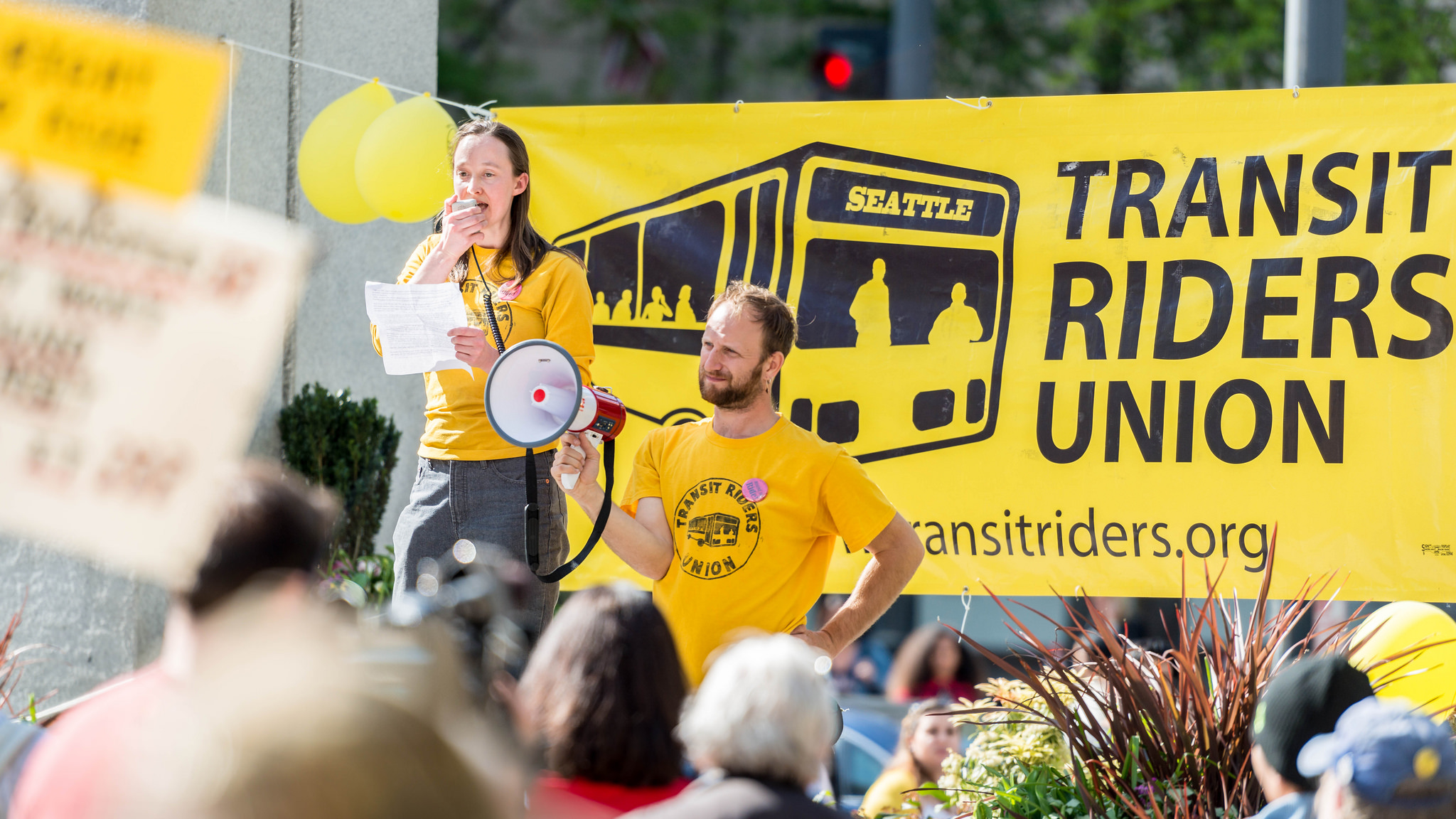On February 5th a nationwide coalition came together to celebrate Rosa Parks’ birthday as Transit Equity Day. The same coalition is planning a week of action from April 16th to the 22nd, coinciding with Earth Day, to promote a full spectrum transition away from a fossil fuel economy.
Transit Equity Day was a time to observe and recognize public transit as a civil right, a solution for climate change, and a workers’ rights issue. Rosa Parks’ birthday will now be celebrated as Transit Equity Day every year. She was an epic civil rights leader whose act of resistance is etched into the history books forever.
Behind the organizing are many community, environmental, and labor organizations — like the Labor Network for Sustainability, the Amalgamated Transit Union, Jobs with Justice, Partnership for Working Families, the Institute for Policy Studies, and Americans for Transit. There were Transit Equity Day events in more than 15 cities and towns nationwide. The complete list of organizations and cities involved can be found here.
While every local Transit Equity Day action has its specific local demands, they included common elements such as clean and renewable energy to promote transition from a fossil fuel economy, the right to affordable or free transit regardless of age, gender, race, or class, and the need for public reinvestment in quality, affordable, and accessible transit .
The local action in the District of Columbia for Transit Equity Day included a rally at the Wilson Building, which houses the offices of the District’s Mayor and City Council.
The fight for an equal and affordable public transit system has become an ongoing movement in Washington, D.C. The consistent message from people who attended was the need for accessible and affordable public transit, as well as flat fares, increased service including late night service, and an improved infrastructure. Participants also demanded a more safe transit for all LGBTQ people, women, youth and elderly. They pointed out that a small tax on wealthy residents in the District, Maryland, and Virginia would be more than enough to fund the Washington Metro’s budget.
As the April events get underway, you can see footage from the February action in this short video.
